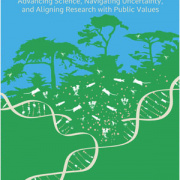Stop The Gene Bomb! ETC Group Comment on NAS Report on Gene Drives
Submitted by Joëlle Deschambault on
Coming in at over 200 pages, today’s National Academy of Sciences (NAS) report, 'Gene Drives on the Horizon’ is weighty but disappointing. It fails to properly address three of the most pressing issues raised by the controversial new technology of CRISPR-CAS9 gene drives. Dubbed, the ‘mutagenic chain reaction’ by its inventors, RNA-guided gene drives are a high-leverage synthetic biology technology invented only last year.










